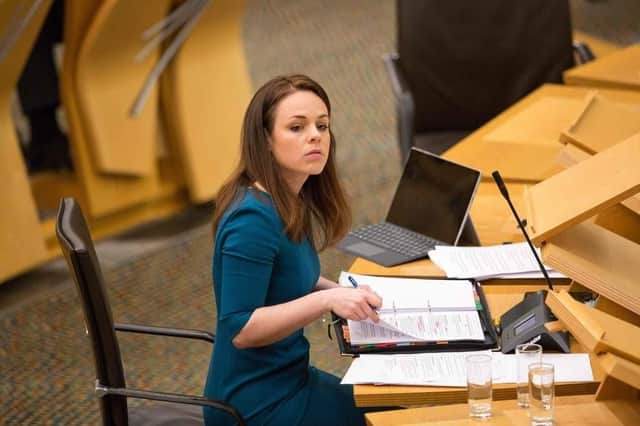SNP mismanagement has cost Scottish Government hundreds of millions of pounds – John McLellan


But if complaining about council services is a national sport, this week’s Scottish Government spending review has put Edinburgh in the Champions’ League.
Edinburgh Council was already facing a £60m budget cut, but with Institute for Fiscal Studies analysis showing local authorities now face an additional eight per cent real terms cut over the next four years, a bonfire of election promises is the result.
Advertisement
Hide AdAdvertisement
Hide AdSNP councillors may reflect on Finance Secretary Kate Forbes’ plan with relief they’re out of office and don’t have to explain why their grandiose promises were undeliverable, like building 15,000 affordable homes in the next five years.
Crucial to tackling relative poverty, it was reliant on more Scottish Government funding, but with £1 billion coming off council budgets that’s unrealistic to say the least.
It now falls to the Labour group to balance books that look unbalance-able without drastic action, and the least we can expect is Council Tax rises in line with inflation which will only add to the cost-of-living crisis and hammer already hard-pressed families. In return, tax-payers will be rewarded with poorer services.
Of course, as usual the SNP locally and nationally will bleat it’s all Westminster’s fault, but that doesn’t bear scrutiny, with Strathclyde University’s Fraser of Allander Institute pointing out the Scottish Government’s block grant is expected to keep pace in real terms until 2025-26, even if it is tight, with the total budget due to rise from £41.8bn to £47.5bn.
Advertisement
Hide AdAdvertisement
Hide AdCrushing local services is a direct result of SNP policy decisions, and while it’s true many people would support the increase in health spending, from £17.1bn to £19bn in the next five years, it’s not at the expense of everything else. They will expect waiting times to be slashed and treatments to improve, yet there is no guarantee the extra £2bn will make Scotland healthier.
Similarly, most people would not object to an extra £2.4bn for social security benefits if that’s what it takes to avoid mass destitution, but less so if it disincentivises work and there is no focus on improving productivity in a genuinely competitive economy.
If anything, the SNP’s choices are going in the other direction, particularly income tax rises which all too predictably ended up with less revenue. Tinkering with rates to make spurious claims about being more “progressive” has, according to the Scottish Fiscal Commission, cost it £190m in lost revenue, not the additional £500m it hoped to generate.
Similarly, the political posture of splitting from the UK’s National Census has meant spaffing £150m to produce data which is unusable for its core purpose of planning future service needs.
Advertisement
Hide AdAdvertisement
Hide AdSo too is squirrelling away £20m for an independence referendum the SNP has neither the support nor the power to hold in the next 18 months, a political choice which diverts resources from other priorities.
Someone has to pay for free buses for 22-year-olds and all the other give-ways, and that’s essentially taxpayers and businesses in Scotland and London.
Councils must deal with the consequences but rather than stopping with her and her boss, Kate Forbes’ “reset” of public services is just passing them the buck.
Comment Guidelines
National World encourages reader discussion on our stories. User feedback, insights and back-and-forth exchanges add a rich layer of context to reporting. Please review our Community Guidelines before commenting.

